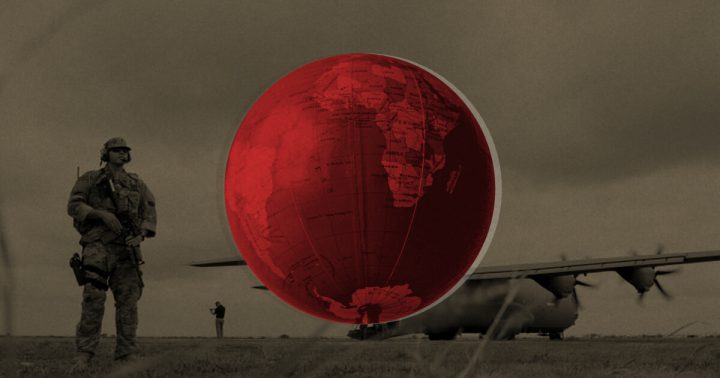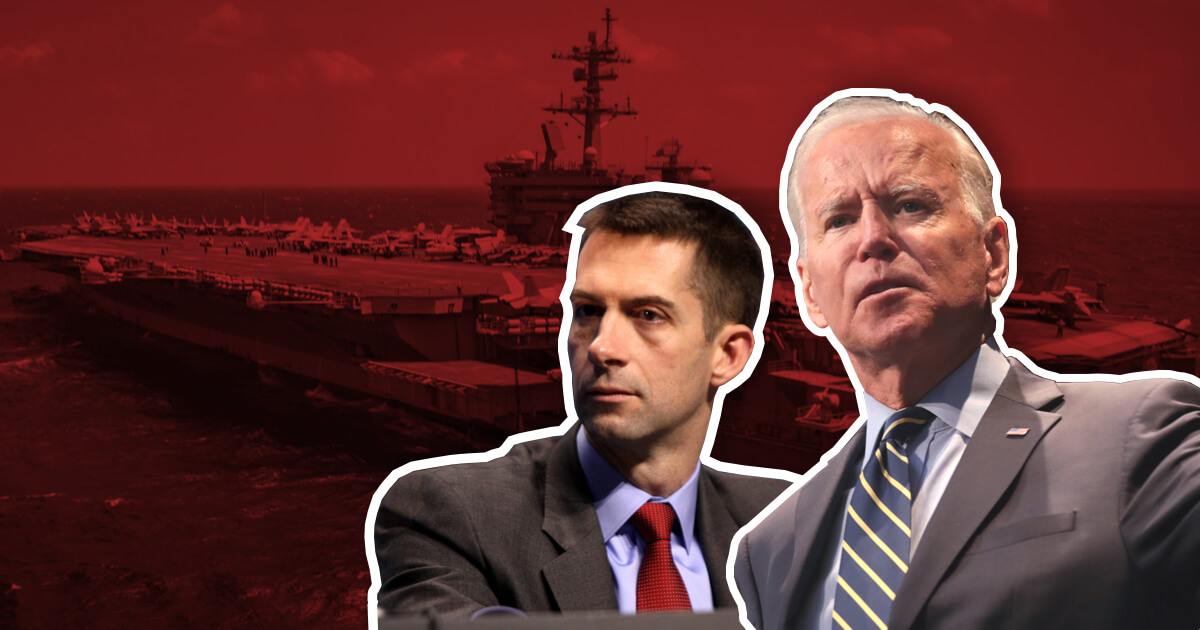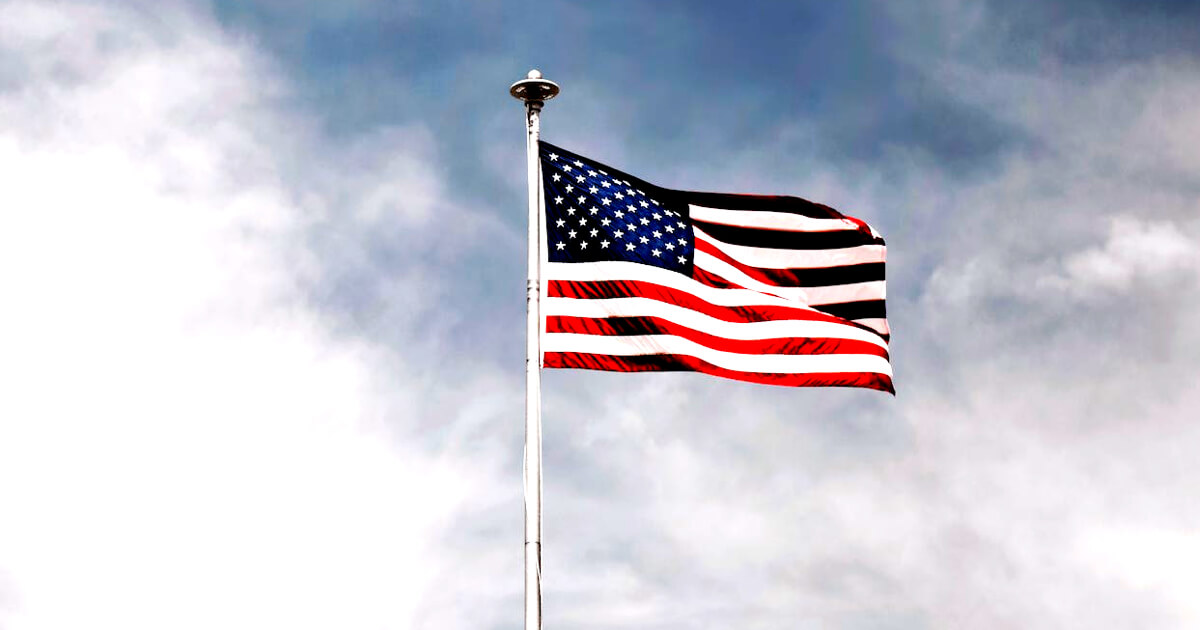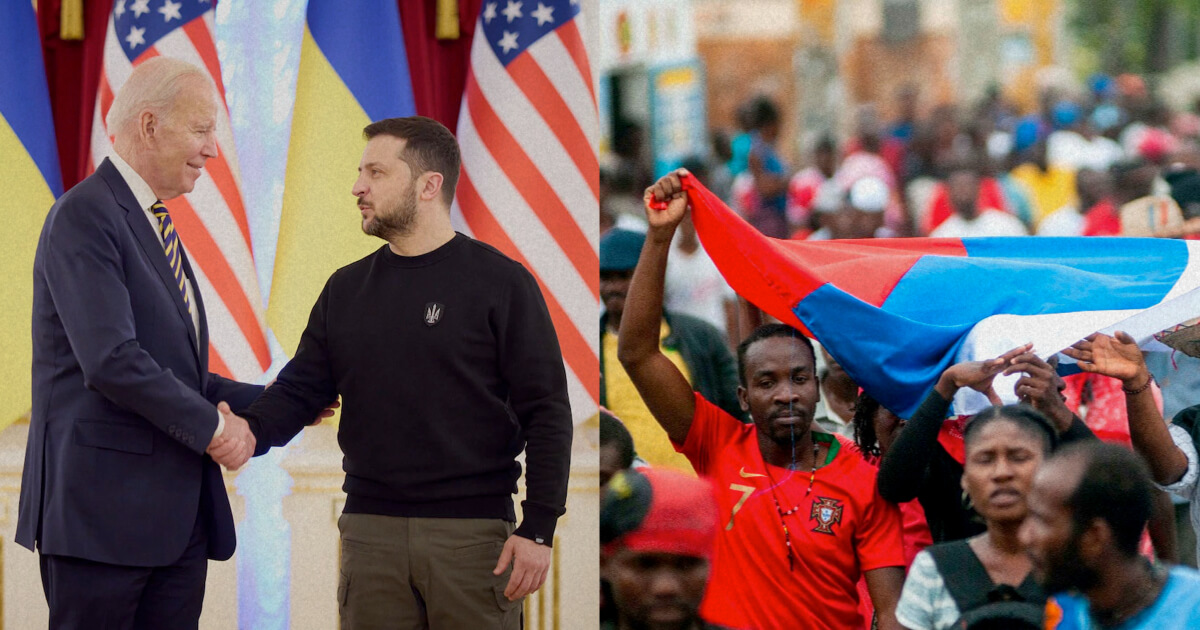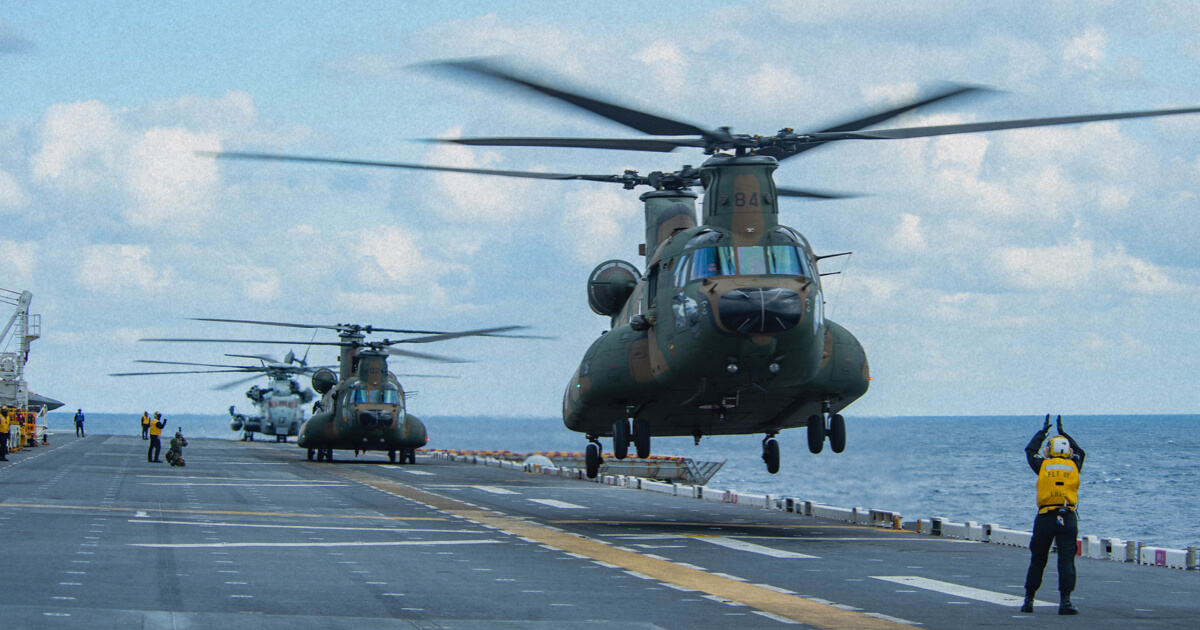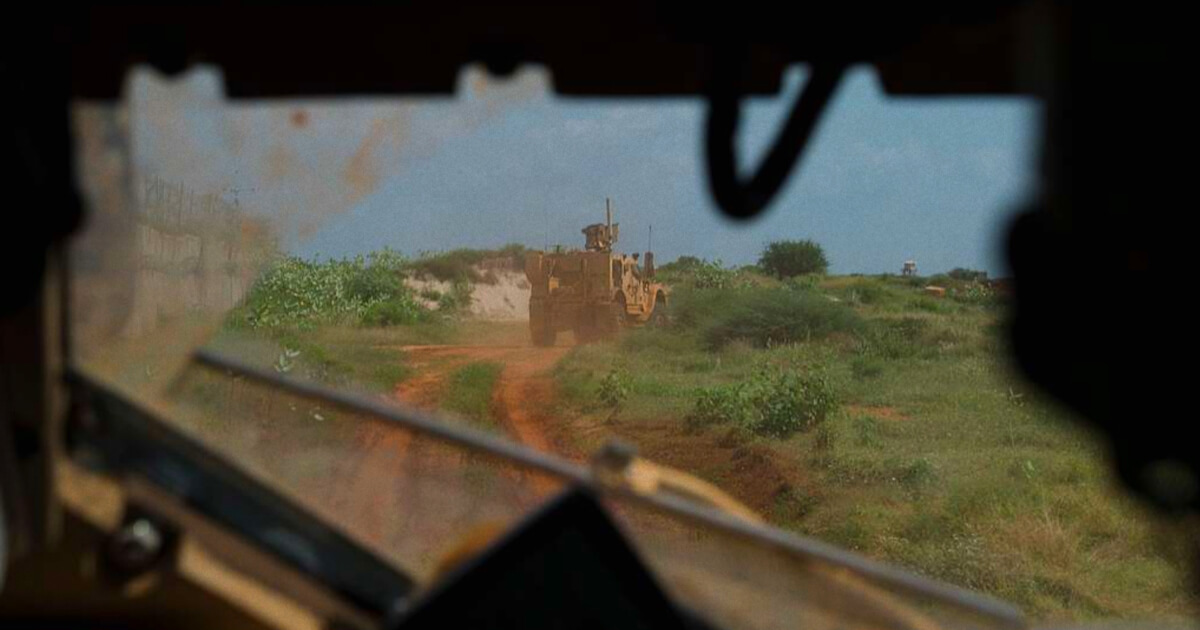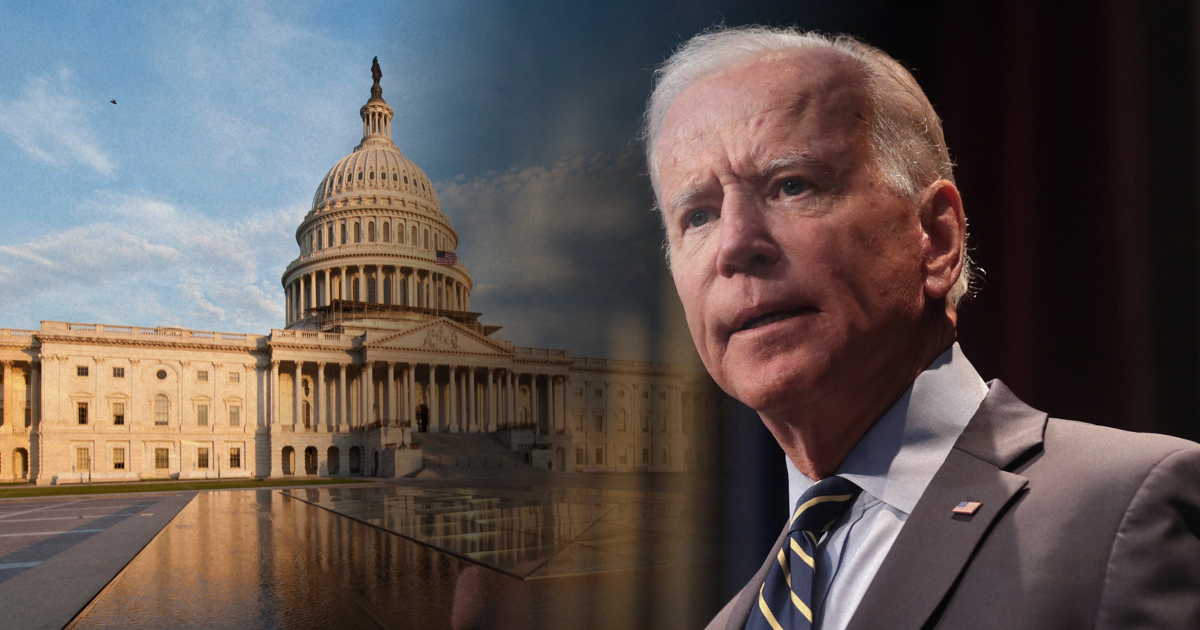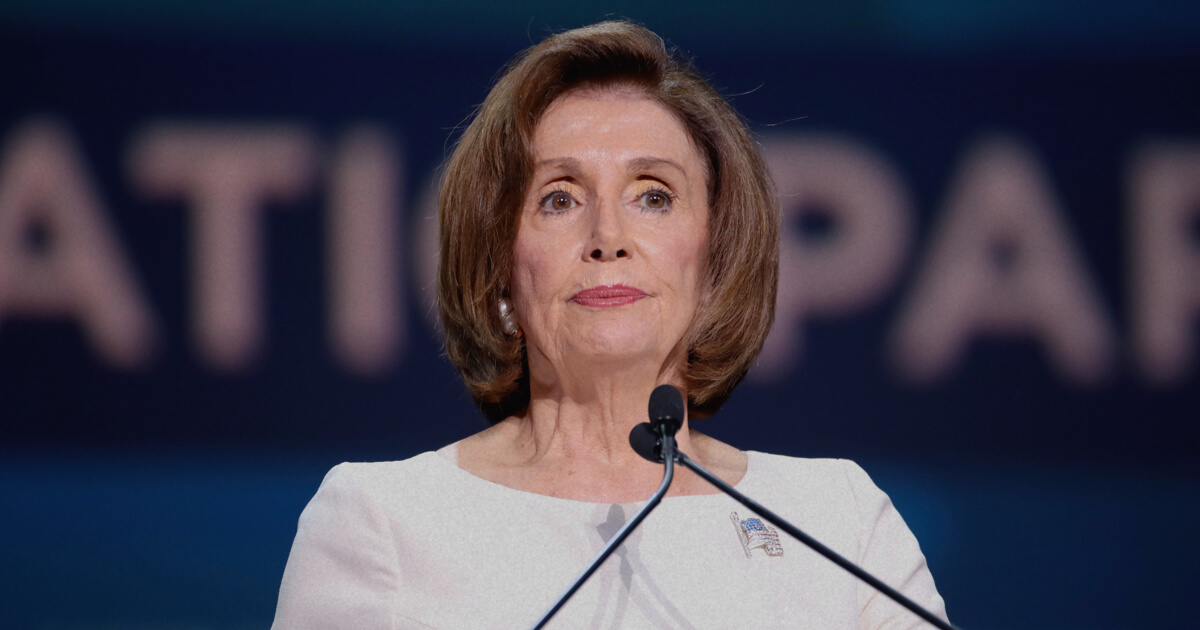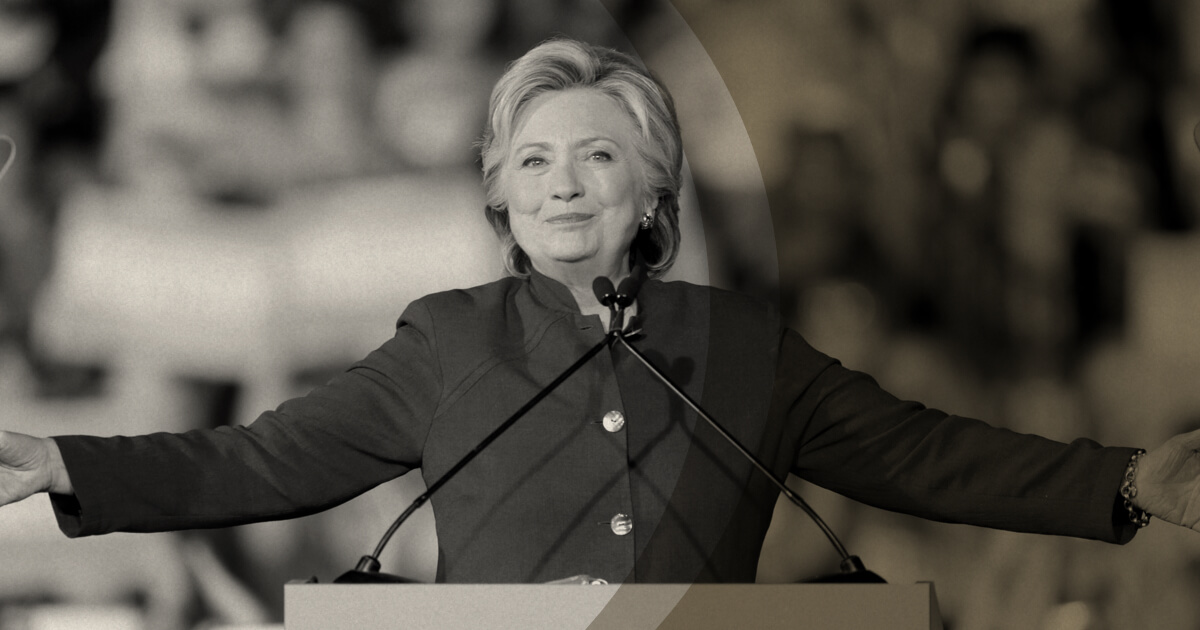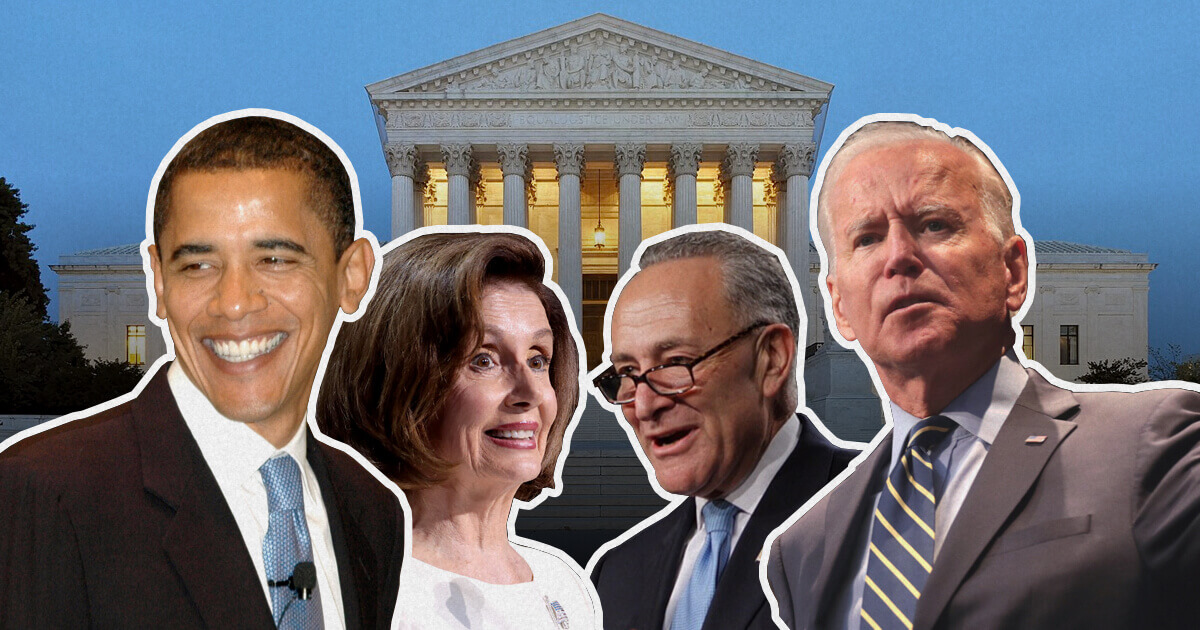The Biden administration, Pentagon and NATO allies are conducting a dangerous and reckless campaign against Russia — one that has the potential to turn into a catastrophe for the people of the United States, Russia, Ukraine and the world. The aim is to strengthen the U.S. position as the dominant world superpower, a thoroughly bipartisan goal. In recent months, Russia has been the object of intense media demonization designed to win over the U.S. public to support this campaign.
The Party for Socialism and Liberation condemns the anti-Russia campaign and calls for an end to the imperialist NATO alliance
While NATO, the “North Atlantic Treaty Organization,” has moved ever-eastward over the past three decades to surround Russia, it is Russia that is relentlessly depicted as the aggressor by U.S. politicians and the mass media. In reality, NATO has always been an offensive, not defensive, alliance. Created in 1949, it grouped together major imperialist powers in anticipation of a third world war against the Soviet Union and its allies. Since the end of the Cold War, NATO has been increasingly repurposed to contain the Russian Federation — now capitalist but still independent of the western powers.
When the Soviet Union collapsed in 1991, NATO consisted of 16 member states. Since then it has added 14 countries, mostly former republics of the Soviet Union or its allies in eastern Europe. From its beginning, NATO has been dominated by the United States. Despite the “North Atlantic” in its name, the United States has drawn many NATO states into its wars and occupations in Afghanistan, Iraq, Libya and elsewhere.
Washington has sought to extend NATO’s reach by incorporating the former Soviet republics of Georgia and, most critically from a strategic point of view, Ukraine.
The vast expansion of NATO has taken place despite the “assurances” that U.S. officials in the George H.W. Bush administration made to the Gorbachev leadership of the USSR that if the Soviets allowed German unification, NATO would not seek to move even “one-inch further to the east.”
In 2014, the Obama administration openly supported a “color revolution” in the deeply divided Ukraine, using neo-Nazi military forces to violently overthrow the elected president Viktor Yanukovych, who had attempted to maintain a centrist position between Russia and the European Union. U.S. diplomat Victoria Nuland was famously seen handing out cookies to protestors in Kyiv, the capital city, and was captured on tape designating who the new president should be. Nuland is today the State Department official in charge of Ukraine-related affairs.
U.S. leaders expected the overthrow of Yanukovych would be followed by Ukraine joining the European Union and NATO, completing the encirclement of western Russia and its largest population and economic centers. Such a development would have meant that the strategic Crimean Peninsula, home base to Russia’s Black Sea fleet, would have passed into NATO’s hands — something no Russian government could accept.
Crimea was part of Russia from 1783 until 1954, when it was transferred to the Ukraine Soviet Socialist Republic at a time when Russia and Ukraine were both part of the same state, the Union of Soviet Socialist Republics. Russian forces occupied Crimea following the 2014 coup, and in a referendum, 95% of the mostly ethnic Russian population voted in favor of rejoining the Russian Federation. The NATO leaders were stunned by this setback, but the alliance’s eastward march did not end. Nor did U.S. military aid. Since 2014, the United States has provided more than 90% of Ukraine’s foreign military aid now totaling nearly $3 billion — as well as trainers and special operations forces — and has been increasing that aid in recent years.
In the eastern Ukraine, an armed revolt against the U.S.-backed and fascist-led 2014 coup led to the creation of two semi-independent regions, the Luhansk People’s Republic and the Donetsk People’s Republic.
The current crisis
In 2019, the Trump administration unilaterally withdrew from the 1987 Intermediate-Range Nuclear Forces treaty, signed by the United States and the USSR, which called for eliminating short and intermediate nuclear-armed missiles. These missiles had been especially threatening to the USSR when it existed because of the closeness of U.S. bases in Turkey and western Europe, and became an even more immediate danger to Russia as NATO began incorporating eastern European states in 1997. Major Russian cities were within a few minutes flying time of missiles from NATO bases in those countries. The danger would be multiplied if Ukraine, which has a 1,200-mile border with Russia, were to become a NATO member or if its territory was used as a staging ground for advanced weapons and foreign military forces.
In 2021, Russian equipment and military forces were deployed near the border with Ukraine, but clearly inside Russian territory. U.S. officials, including President Joseph Biden and Secretary of State Antony Blinken, predicted — in defiance of evidence and logic — that Russia was about to launch an all-out invasion.
Russian President Vladimir Putin responded with demands that included: 1) Ukraine would never join NATO; and 2) Nuclear weapons and advanced conventional missiles and weapons would never be deployed in Ukraine. The United States and NATO rejected the first demand out of hand. White House press secretary Jen Psaki stated the president supported “the right of sovereign nations to choose their partnerships and alliances.”
However, when Russian leaders stated that they might step up their military relationship with Cuba, Venezuela and Nicaragua, National Security Adviser Jake Sullivan responded, “If Russia were to move in that direction, we would deal with it decisively.” By “decisively” Sullivan clearly means “militarily.” In other words, the “right” of countries to “choose their partnerships and alliances” extends only to those who are in the good graces and do the bidding of Washington.
The calamitous collapse of the Soviet Union in 1991 and its aftermath seemed to relegate Russia to the status of a secondary power, perhaps permanently. But starting in the early 2000s, while now a capitalist country, it began to recover its position in the world. From a military perspective, it continued to be the second nuclear weapons state. It developed mutually beneficial relations with the People’s Republic of China, and a common front on many diplomatic matters.
It is exactly this recovery that has caused Russia to become increasingly a target of U.S. imperialist hostility over the past two decades. The working class and people here have no interest in the demonization campaigns whether directed against Russia or any other country. Now is the time for the antiwar and other people’s movements to say “NO” to a new war or sanctions against Russia.
Photo: Armored unit participates in a NATO military drill. Credit: Sgt. Sebastien Frechette


